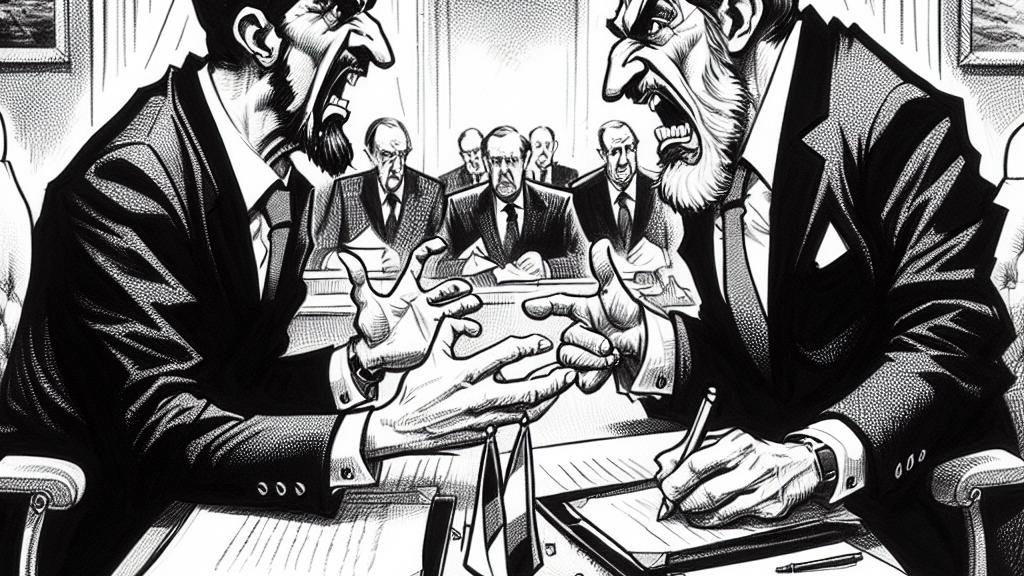Understanding the Rare Breakdown in US-Ukraine Talks
Overview
- The recent US-Ukraine negotiations ended in an unexpected diplomatic failure that surprised many.
- Both President Trump and President Zelensky face intense political pressures impacting their choices.
- This breakdown illustrates the intricate connection between international relations and internal political dynamics.

A Dramatic Breakdown of Diplomacy
In a surprising twist, the anticipated meeting between U.S. President Donald Trump and Ukrainian President Volodymyr Zelensky took place in Vienna, Austria, but concluded without any successful agreement. At first, the atmosphere was charged with optimism, as both leaders aimed to seal a crucial deal regarding resource rights, which is vital for Ukraine’s economy. However, as the discussions progressed, tensions flared. Trump, known for his brash negotiation style, grew increasingly frustrated when his assertive demands failed to resonate with Zelensky. This incident didn’t just end in a failure; it starkly revealed the unpredictable nature of international diplomacy, especially when two dominant personalities collide.
Zelensky's Balancing Act
Zelensky was undoubtedly on a tightrope throughout these tense negotiations, navigating pressures from multiple fronts. On one hand, he had ardent supporters who expected him to get as much as possible from the U.S.—significant backing in a time of crisis. On the other hand, his critics were waiting to pounce on any indication of capitulation to external pressures. Picture this: if Zelensky appeared too eager to please Trump, it could significantly tarnish his image and jeopardize his chances in the upcoming elections. Thus, he had to strike a precarious balance—seeking support from the U.S. while unyieldingly projecting a sense of national pride and strength. This intricate dance emphasizes the complex realities that political leaders must negotiate during high-stakes diplomatic engagements.
Broader Consequences of the Failed Talks
The fallout from this diplomatic debacle extends well beyond disappointment; it largely illuminates deeper issues prevalent in today's geopolitics. The breakdown showcased how leaders like Trump and Zelensky can become ensnared in the web of political pressures, which often obstructs constructive dialogue. A notable example from history is when the U.S. and North Korea struggled to reach an agreement, influenced heavily by the domestic agendas of both leaders, demonstrating that internal political landscapes frequently overshadow vital international discussions. As leaders devote more time to preserving their political power, crucial topics for global cooperation may remain unresolved. Ultimately, this incident serves as a powerful reminder that, in the world of diplomacy, the stakes are consistently high and the journey can lead through treacherous waters. Here, personal egos and political realities intertwine to shape the future of international relations in unpredictable ways.

Loading...